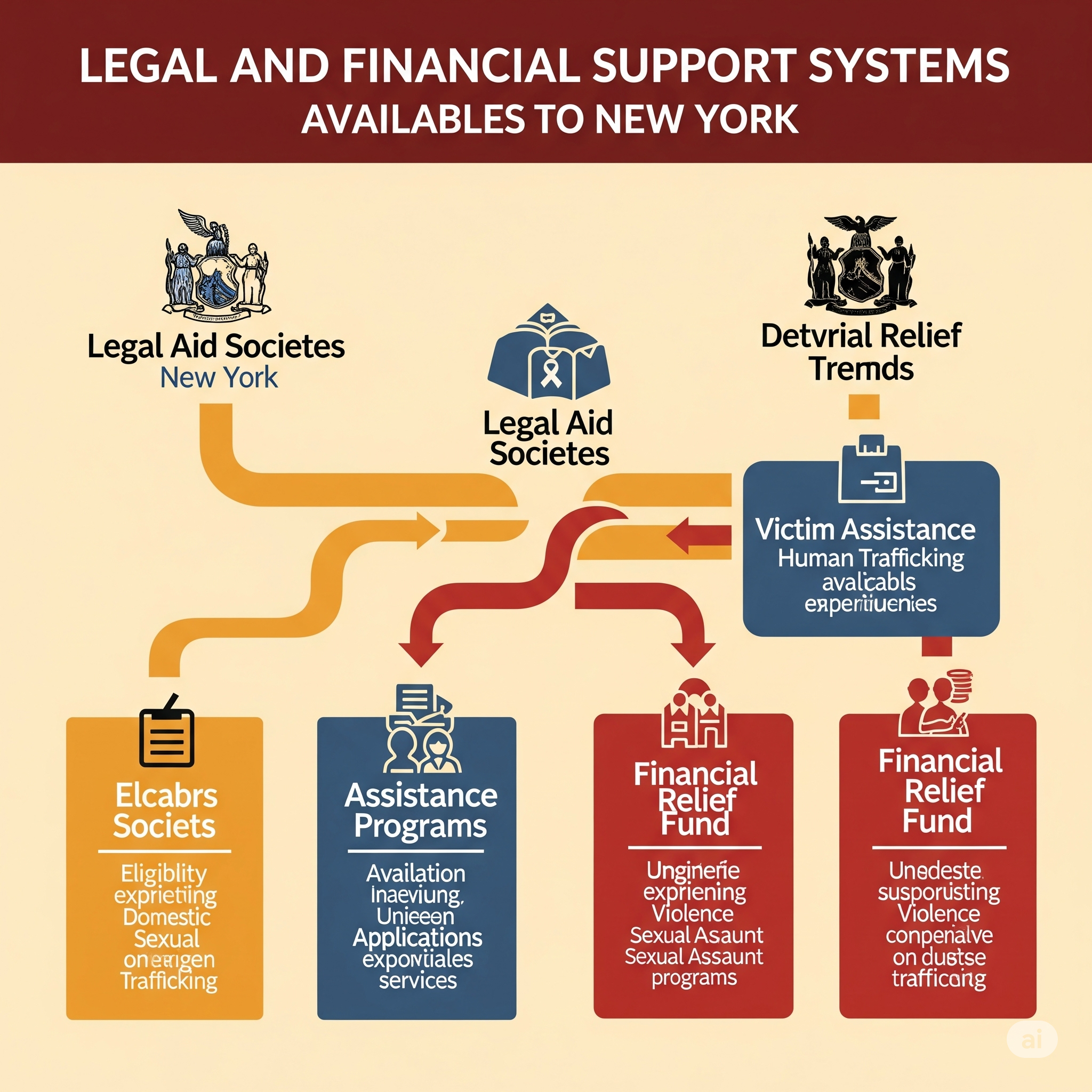Navigating the System: Legal & Financial Support for Survivors in New York
This blog post highlights the crucial legal and financial resources available to survivors in New York City, providing information on where to find support and guidance.

Essential Legal and Financial Support for Survivors in New York City
New York City offers a robust network of organizations dedicated to helping survivors of trauma navigate complex legal and financial systems. From understanding your rights to securing financial stability, these resources provide practical assistance and guidance on the path to recovery.
Legal Assistance: Understanding Your Rights
Knowing your legal options is a vital first step toward justice and safety. Survivors can access free or low-cost services from:
- Victim advocacy groups such as Safe Horizon and the NYC Alliance Against Sexual Assault, which offer legal counseling, court accompaniment, and help with filing police reports and obtaining restraining orders
- Legal Aid Society’s civil services for low‑income individuals, covering housing disputes, family law matters, and public benefits
- Pro bono programs through law firms and bar associations that connect survivors with volunteer attorneys for individualized representation
Financial Empowerment: Building Stability
Financial security underpins a survivor’s ability to rebuild and move forward. Key resources include:
- New York State Office of Victim Services compensation funds that cover medical expenses, counseling, lost wages, and relocation costs
- Public assistance programs like SNAP, Medicaid, and housing vouchers, with application support from the Human Resources Administration
- Financial counseling and education services from nonprofits that teach budgeting, debt management, and long‑term planning
Accessing Support: Taking the First Step
Reaching out for help can feel daunting. Survivors in NYC can begin by:
- Contacting a trusted advocate at a victim services organization to get immediate guidance and referrals
- Exploring online directories such as the NYC Hope Resource Directory to locate tailored legal and financial programs based on needs and borough
- Asking for help from community centers, healthcare providers, or counselors who can connect survivors with appropriate services
Conclusion
Survivors in New York City are not alone. By leveraging the city’s legal advocacy, compensation programs, and financial education resources, individuals can reclaim stability and move toward healing. The first step—reaching out for support—opens the door to a brighter future free from crisis.
